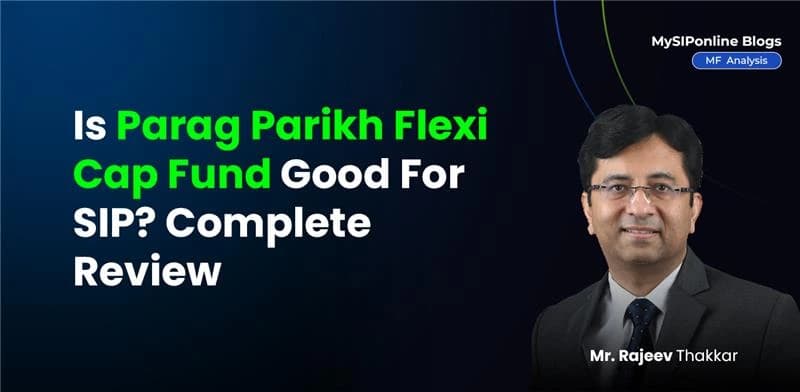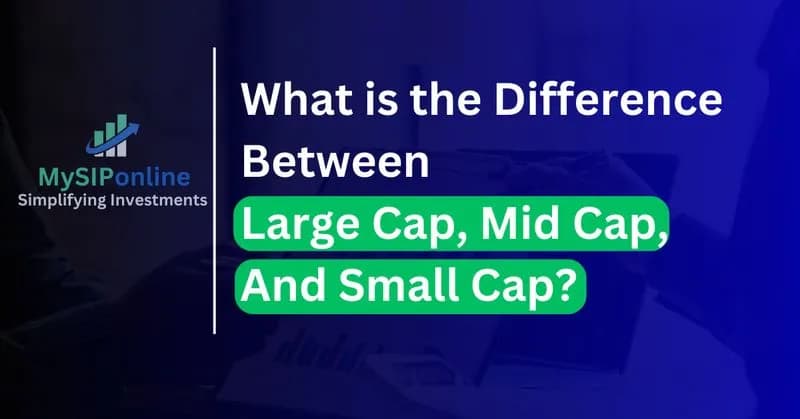Table of Contents
- Parag Parikh Flexi Cap Fund Overview: Investing Objective & Returns
- SIP Returns of Parag Parikh Flexi Cap Fund: Performance Analysis
- What is the Investment Strategy of PPFCF?
- Expert Minds Behind the Fund Management
- Parag Parikh Flexi Cap Fund Portfolio Allocation
- Parag Parikh Flexi Cap Fund Asset Allocation Review
- Analyzing the Rolling Returns of Parag Parikh Flexi Cap Fund
- Final Thoughts
Did you know that Parag Parikh Flexi Cap Fund has given more than 19% SIP returns over the last 5 years?
Yes, such an excellent performance has put it on the map amongst one of the most popular funds in the flexi cap category.
But wait, does this make PPFCF good for SIP? & "Is it truly a good fit for you to start a systematic investment plan in 2025?" Let's find out.
This analysis will weigh this fund on various parameters, including the return of the Parag Parikh Flexi Cap Fund last 5 years, investment style and what is happening with PPFCF right now, which will help you make an unbiased decision on whether or not it is good to start SIP.
Parag Parikh Flexi Cap Fund Overview: Investing Objective & Returns
The Parag Parikh Flexi Cap Fund. formerly known as the Parag Parikh Long Term Equity Fund is managing a current AUM of Rs.93,381 Crores (As of 31.03.25), making it the 5th largest fund in the flexi cap category.
First things first, let's understand how the Flexi Cap Mutual Funds work. It involves a dynamic allocation strategy in which the fund managers have the full flexibility to adjust their portfolio between the large, mid and small cap stocks to fit the market trends and growth potential of your portfolio.
Investment Objective
This scheme under the Parag Parikh Mutual Fund focuses on the long-term wealth creation for investors. For this, the scheme has primarily focused on investing in equity funds. Since equity funds have the potential to deliver great returns over the long term.
Recent Status
Might you be interested in knowing “What is happening with Parag Parikh Flexi Cap Fund?” If yes, then you must know it has made a few minor corrections. This flexi cap fund has strategically adjusted its portfolio in March, reducing stakes in Coal India, Motilal Oswal and Power Grid while at the same time increasing exposure to Zydus Lifesciences, Mahindra & Mahindra and many others. It currently manages 27 stocks with AUM grown to Rs.93,381 crores.
SIP Returns of Parag Parikh Flexi Cap Fund: Performance Analysis
Reviewing the Parag Parikh Flexi Cap Fund SIP returns of the fund will help investors compare it with others. They are one of the best parameters to decide how a fund is performing. So let's see what the data is saying:
The Parag Parikh Flexi Cap Fund has given 18.16% SIP returns in 3 years, which is higher than both the benchmark index and the category average.
And if you see the 5-year SIP returns, you will see the same performance. The PPFCF has delivered 19.12% returns which is greater than both of its peers.
Start Your SIP TodayLet your money work for you with the best SIP plans.
After knowing about such high returns, investors often get curious about the investment strategy used by the fund. Let us learn about that effective investment strategy.
What is the Investment Strategy of PPFCF?
The scheme used a contrarian strategy during a bullish market. It focuses on companies that have very strong fundamentals. These can be good cash flow, low debt and other features that show their good performance.
The targeted stocks have great intrinsic value and competitive moats. Besides, the fund maintains a high cash reserve that is around 15-25%. These cash reserves help the fund seize the opportunities during the market is down.
It is very important to have expert personnel in the team to implement a contrarian strategy in an effective manner. Moreover, in the case of the PPFCF, there is not one, but many expert minds behind the fund management. Let’s know them.
Pro Tip: Check your returns using the SIP Calculator free of cost.
Expert Minds Behind the Fund Management
Mr. Rajeev Thakkar leads the expert team of fund managers. Mr. Thakkar is a certified Chartered Accountant and CFA. He has a working experience of over 25 years in financial markets. Along with Mr. Thakkar, there are Raunak Onkar and Raj Mehta in his team. The former is the head of the research and the latter is the head of fixed income and debt management.
This compact team of skilled experts puts its efforts into improving value investing. Under Mr. Thakkar’s leadership, the AUM of the flexi cap mutual fund scheme grew from Rs 300 crores in 2013 to Rs.93,381 by March 2025. The fund has delivered a compound annual growth rate (CAGR) of approximately 20% since its launch.
So far, we have reviewed the SIP returns, investment strategy, and learnt about the expert minds behind the fund management. This information will be helpful for you to get an answer to the question: Is Parag Parikh Flexi Cap Fund good for SIP?
Now, let’s proceed to analyze how the fund invests money into different sectors. This sector will help you understand how the scheme protects your money from market fluctuations and gives you good returns consistently.
Parag Parikh Flexi Cap Fund Portfolio Allocation
The PPFCF maintains a diversified sector allocation. This protects the Mutual Funds from market fluctuations in the long run.
Refer to the below graph to learn about the sector allocation of the Parag Parikh Flexi Cap Fund:
As you can see, the scheme has allocated the biggest chunk of funds to the financial sector, which is around 29.95%. This shows that the financial sector holds great potential to grow in the future. It has also invested a considerable share of money into technology (15.14%) and consumer discretionary sectors (11.46%).
Furthermore, it has invested around 6% of its funds in the materials and energy sectors. Identification of such potential sectors shows how efficient fund managers are.
Besides sector allocation, knowing about asset allocation can also be helpful. Asset allocation plays a crucial role in minimizing risks, because the more diversified the asset allocation is, the lower the risks will be. So let’s have a look into it.
Parag Parikh Flexi Cap Fund Asset Allocation Review
The fund makes sure that its assets are allocated in a diverse way. Because it will reduce the risk of market volatility. And help investors attain their financial goals. You can refer to the chart below to have a clear idea of the asset allocation of the scheme:
The Parag Parikh Flexi Cap Fund has invested around 77% of its funds in equity stocks. And it has invested more than 21% of its funds in debt stocks. This shows that the fund is largely an equity fund.
However, a very small portion which is 1.32% of the fund, is invested in cash and its equivalents. Such a balanced approach to asset allocation provides investors with their expected returns.
Before giving the final thoughts on the performance, let’s assess the rolling returns of the fund. This will help you have a clearer idea about the performance of the fund.
Analyzing the Rolling Returns of Parag Parikh Flexi Cap Fund
Reviewing the rolling returns is equally important. Because it can help investors assess the average returns of PPFCF over long durations. So let's have a look at the rolling returns:
It is evident from the previous data that the Rolling Returns are also exceptionally well. The fund has given almost 19% rolling returns in 3 years with nearly 90% consistency. It has also given around 19% rolling returns in 5 years, that too with almost 90% consistency.
Such a high level of consistency is very hard to maintain. As we all know, that the past few years have been through very difficult time. We have gone through the global pandemic and witnessed various regional conflicts. Despite such uncertain market conditions, the fund managed to give great returns to its investors.
Among the various parameters to assess a fund, SIP returns and rolling returns are two of the most important parameters. Considering these impressive returns, you must have got the answer to the question, Is Parag Parikh Flexi Cap Fund good? So, now let us conclude the review with the final thoughts.
Looking for free investment services available 24*7? Get regular updates on your smartphone now.
Final Thoughts
To wrap up, the Parag Parikh Flexi Cap Fund has been consistently outperforming benchmarks and its peers. The fund has faced significant challenges due to reduced overseas exposure. Despite this, it has managed to give such huge returns in different time horizons.
So why wait? When you can also have great returns from PPFCF by starting a SIP in the scheme. It offers a minimum SIP of Rs.1,000, which makes it very affordable for everyone. You can calculate your returns with the help of the SIP calculator as well. This will help you select the most suitable plan for you.







.webp&w=3840&q=75)




